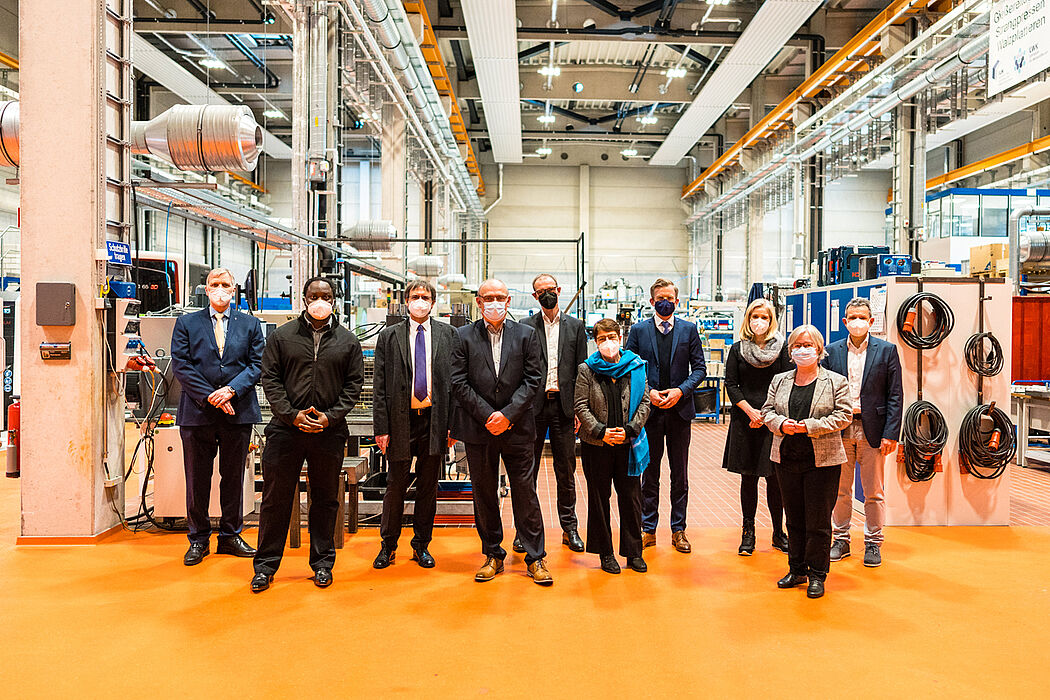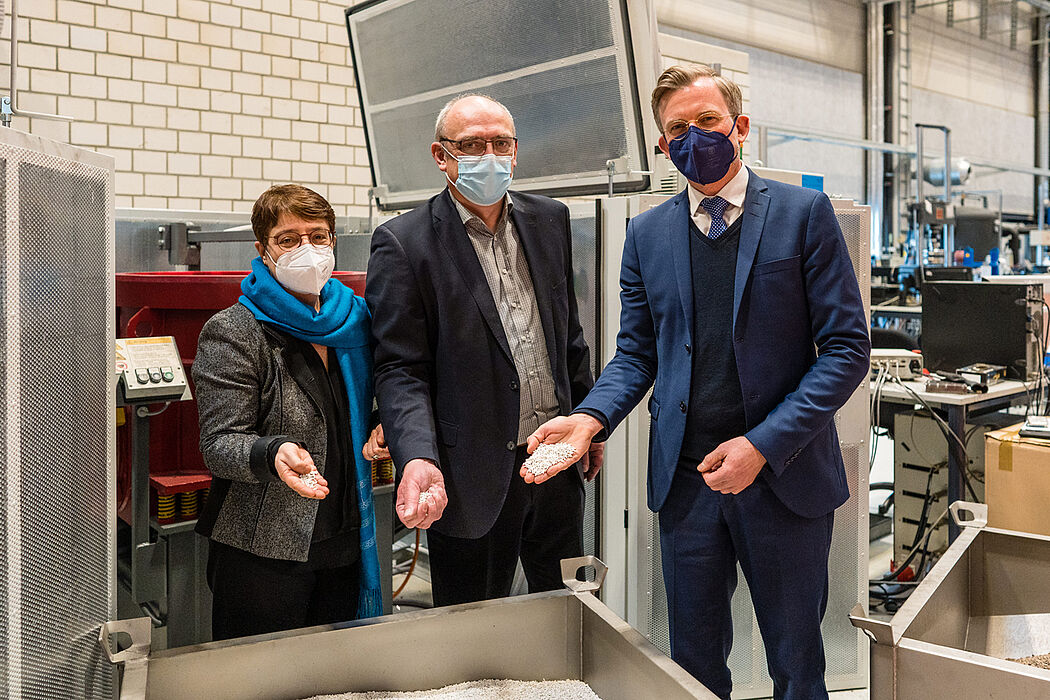During his inaugural visit, the new State Secretary in the Ministry of Culture and Science of the State of North Rhine-Westphalia (MKW NRW), Dr. Dirk Günnewig, exchanged information with the Presidential Board and some scientists about the University of Paderborn and its research profile. The focus was on the cooperative approach - both in research and teaching and in projects with external partners. "Here we are dealing with central future topics that address important questions for our society," he said enthusiastically.
President Prof. Dr. Birgitt Riegraf gave the state secretary insights into the structures and focal points of the University of Paderborn's five cross-faculty profile areas. "In addition to basic research, we are also able to carry out lighthouse projects such as the international research center on photonic quantum computing or the Excellence Start-up Center thanks to the strong interdisciplinarity and funding from the state," she added by way of example.
Thinking about the energy and transport transition together
Prof. Dr. Thomas Tröster, Chairman of the Institute for Lightweight Construction with Hybrid Systems (ILH), presented the "New Mobility Paderborn" (NeMo Paderborn) initiative, which recently gave rise to the association of the same name. The University of Paderborn and six other partners from business and administration are among the founding members. The goal is a climate-friendly, user-oriented and networked concept for mobility in rural areas. Here, too, interdisciplinary thinking plays an important role: "We have to consider the development of energy systems, vehicles and the digital transformation together in order to make progress in mobility research," clarified project initiator Tröster. In cooperation with almost 80 partners from East Westphalia-Lippe, a model region for mobility in Germany is to be created.
In order to make such a system accessible to as many people as possible, reduced energy requirements and cost-effective vehicle systems are necessary - prerequisites that can be achieved with the help of lightweight construction. Prof. Dr.-Ing. Mirko Schaper, Dean of the Faculty of Mechanical Engineering, gave Günnewig a tour of the ILH's design hall, which will be inaugurated in 2019. The equipment there enables interdisciplinary research on sustainable materials, processes and products, one of the five profile areas of the University of Paderborn.
Multidisciplinary approach to artificial intelligence research
With the focus on "artificial intelligence" (AI), Prof. Dr. Axel-Cyrille Ngonga Ngomo from the Paderborn Institute of Computer Science is conducting research on another topic relevant to the future. He presented various projects of the university in this field to the state secretary and went into detail about which criteria are necessary for secure and trustworthy data processing. Whether in the top cluster "It's OWL", in which, among other things, a digital marketplace for AI applications is being developed, or in the Collaborative Research Center/Transregio 318 on the explainability of AI - the linking of various disciplines and cooperation with other universities as well as economic partners also plays a central role here.


